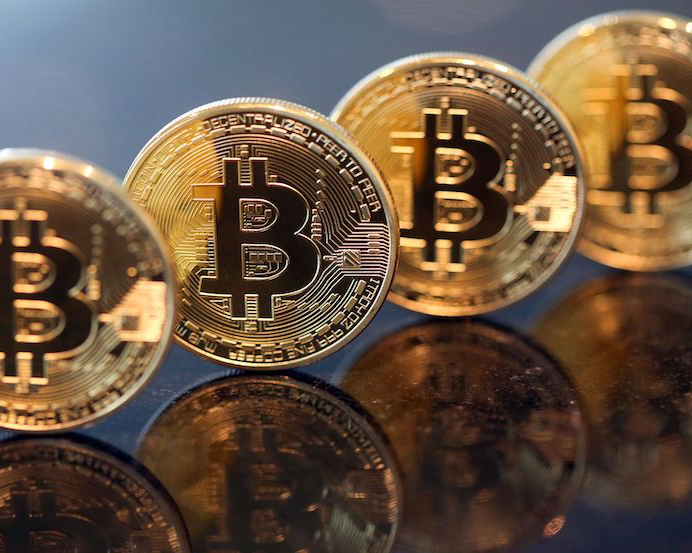
Mike Pence on Leadership and the Future of the Republican Party
Former US Vice President Mike Pence looks back on the events of January 6 2021, his final days in office with President Trump and his…
Thought Leader: Mike Pence

A pandemic that’s contributed to rising inflation may also lead to wider cryptocurrency adoption, historian Niall Ferguson said, as nervous investors look for hedges and may want to think of Bitcoin as “an option on digital gold.”
“A smart investor wants to have some exposure to the success scenario, because the success scenario has such massive upside,” Ferguson said Tuesday at the CFA Society Toronto’s annual “dinner.” (This year’s event took place mid-afternoon and virtually, with no food in sight.)
The author of The Ascent of Money, Civilization and, most recently, Doom said he was initially a crypto skeptic, betting that states wouldn’t allow the currencies to flourish. That risk still exists — investors “should buy every crypto asset with the clear understanding that it could go to zero,” he said.
For that reason, he considers Bitcoin “an option on digital gold,” while Ethereum is the more profound innovation in a world where the internet could have its own decentralized financial system using cryptocurrencies or smart contracts.
Bitcoin adoption among some institutional investors is making it harder for regulators to pull the plug without broader consequences, Ferguson said. And the upside is worth the risk: if every millionaire in the world put 0.2% of their assets in Bitcoin, the real price would be US$15,000, he said. If those millionaires upped their allocation to 1%, the price jumps to US$75,000.
Ferguson gave a wide-ranging presentation Tuesday that was moderated by Sharon Ranson, president of Toronto-based executive coaching firm The Ranson Group. The historian and Stanford University fellow touched on conflict with China, the tech-lash, inflation and the pandemic’s consequences.
“Pandemics can, and have in the past, accelerated financial and monetary transitions,” Ferguson said.
Rising inflation has also contributed to the crypto boom, he said, as investors seek protection with low correlation to broader markets beyond sitting on cash.
Ferguson sounded a cautionary note on inflation. He pointed to the 1960s, when inflation jumped from 2% to 6% even before the next decade’s oil shock.
“I think it’s at least arguable that the same process is happening now and the Fed’s claims that inflation will be transitory look less and less convincing by the minute,” he said.
He pointed to business and consumer surveys that show most people are far more worried about inflation than economists are.
But Ferguson also acknowledged he had “burnt his fingers” following the global financial crisis when he predicted interest rates and inflation would rise much faster than they did, which makes him more cautious in the current debate. He said he still thinks there’s a “high chance” inflation is transitory now and that deflationary forces will once again kick in.
One reason is that significant monetary tightening is on the way, with both the Federal Reserve and the European Central Bank ready to reduce asset purchases. This has Ferguson feeling bearish about the next two years.
He spent the last few weeks “in an agony trying to reduce exposure and increase my cash balance because I just feel like something wicked this way comes,” he said. “There’s a lot of negatives out there that are kind of dominating the good news of the pandemic’s ending.”
One of those negatives is the potential for conflict with China.
“In my view, big shifts in inflation expectations have nearly always coincided with geopolitical conflict, with war,” he said, warning that the shift in sentiment against China in last 18 months could be part of the “scene-setting” for a showdown over Taiwan.
He also pointed to significant slowing in the Chinese economy, which he said won’t be able to maintain its 6% growth target with an aging population. The Chinese Communist Party’s (CCP) attack on big tech companies and private education indicate the regime fears a loss of legitimacy as economic growth slows, he said. “The whole system is actually under much greater strain than we realize and the CCP feels very, very insecure.”
U.S. tech companies are facing their own tech-lash, and Ferguson predicted Facebook would be the fall guy. Anti-trust proceedings will force the social media giant to give up its Instagram and WhatsApp services, he predicted.
As for climate change, Ferguson said he sees a “classic policy fail unfolding” as governments attempt to shift from fossil fuels without sufficient planning.
“We can’t just give up fossil fuels like we quit smoking,” he said.
The world isn’t ready to run on solar and wind, Ferguson said, and he pegged Canada as a potential “adult voice” about the energy transition. “I think there’s a need for us to understand that the energy mix can only be gradually changed,” he said.
Mike Pence on Leadership and the Future of the Republican Party
Former US Vice President Mike Pence looks back on the events of January 6 2021, his final days in office with President Trump and his…
Thought Leader: Mike Pence
Marc Short on U.S. Investment in Critical Minerals
Why do critical minerals matter now? Marc Short explains how U.S. investment in critical minerals fits into a broader strategy around economic security, manufacturing, and…
Thought Leader: Marc Short
Marc Short on AI Policy and the Government’s Role in Chip Technology Investment
On CNBC, Marc Short breaks down the role of AI policy and how government investment is shaping the future of chip technology. A former Chief…
Thought Leader: Marc Short

